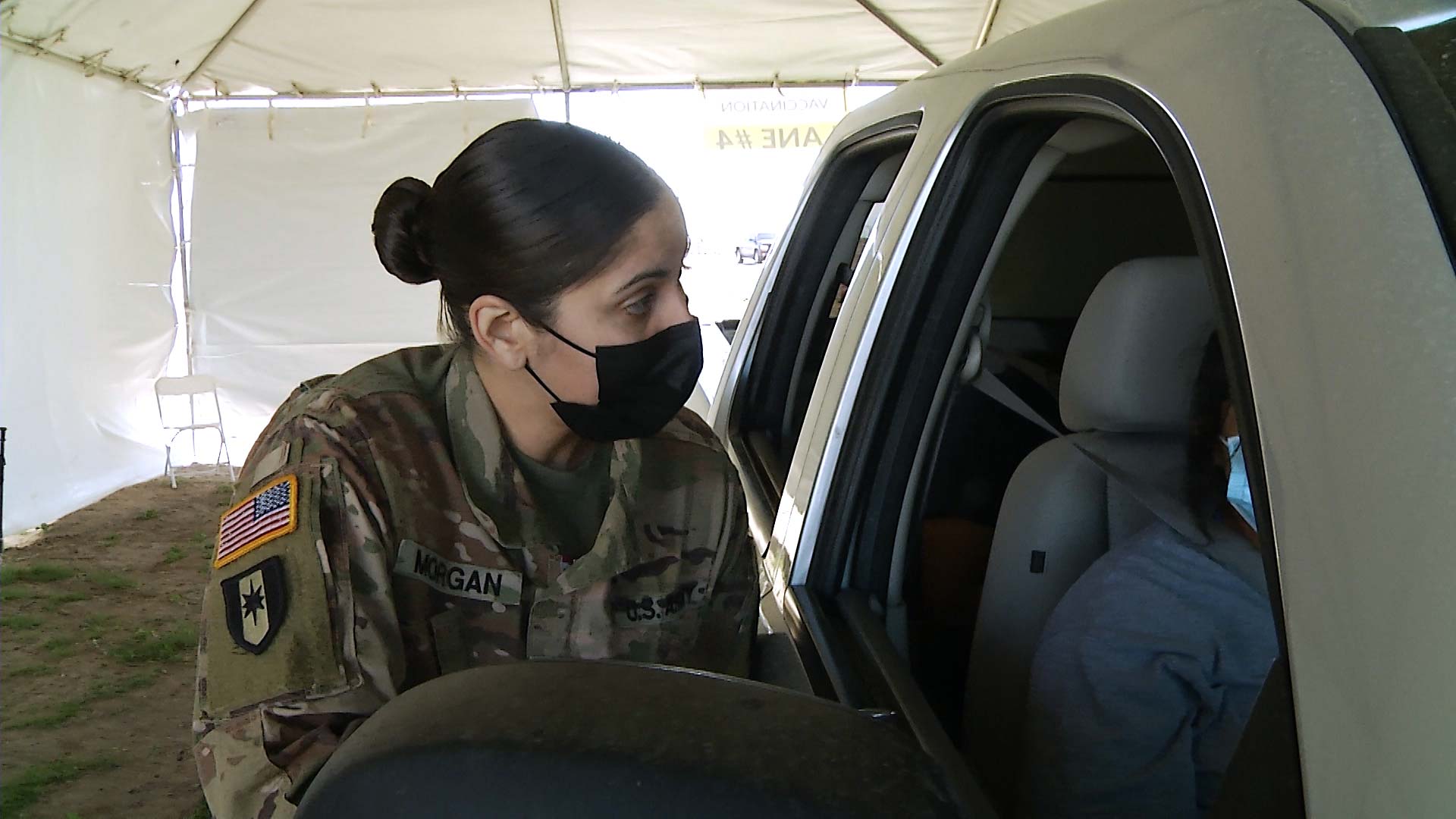 A member of the Arizona National Guard speaks to a COVID-19 vaccine recipient at a vaccination event at Wild Horse Pass Motorsports Park on the Gila River Indian Reservation on Feb. 20, 2021.
A member of the Arizona National Guard speaks to a COVID-19 vaccine recipient at a vaccination event at Wild Horse Pass Motorsports Park on the Gila River Indian Reservation on Feb. 20, 2021.
Indian Health Services, the agency responsible for providing health care to federally recognized tribes, reported 196,745 COVID-19 vaccine doses would be delivered throughout Arizona by last week.
Indigenous peoples in the U.S. have been disproportionately affected by the pandemic. The Centers for Disease Control and Prevention reported last summer that Native Americans were contracting COVID-19 3.5 times more than non-Hispanic whites. Holly Van Lew is a pharmacist at Phoenix Indian Medical Center.
"We do see first-hand just how affected our patients have been, and it's very exciting to move into this new phase where we're seeing the cases decline," Van Lew said.
She said in Arizona there's been a significant case rate and number of hospitalizations and deaths.
Three IHS areas serve tribal members across Arizona: Phoenix, Navajo and Tucson. However, the Phoenix area also covers most of Utah and Nevada, and the Navajo region dips into Utah and New Mexico as well.
These three IHS areas reported 56,749 COVID-19 cases among IHS, tribal and urban Indian organizations, as of March 2.
"We have a great outpouring and desire for vaccines to help end the pandemic, or at least work toward our goal of vaccinating the individuals to provide them with some coverage and prevention," said Van Lew, who is also the Deputy Co-Lead for the IHS vaccine task force.
Not all health care facilities in IHS' jurisdiction are deciding to get their vaccines through the federal agency.
Van Lew said the Tohono O'odham Nation opted to go with the state for its health care facilities, which means the only tribe enrolled in the Tucson IHS area is the Pascua Yaqui Tribe, southwest of Tucson. The Tucson area received 5,200 vaccines, as of March 1.
The Pascua Yaqui Tribe reported in early March its documented 1,786 positive cases and 36 deaths in the Tucson region, and 1,669 cases and 29 deaths near Guadalupe. The last update from the [Tohono O'odham Nation]http://www.tonhc.org/wp-content/uploads/2021/02/COVID-19-Leadership-Update-54-1.pdf) reported there have been 1,735 positive cases among members and 69 deaths, as of February 24. It had administered 6,376 vaccine doses at that time.
According to the CDC, IHS has delivered a little over a million doses with almost 60% administered, as of Sunday.
IHS gets vaccines from the federal vaccine response operation, formerly known as Operation Warp Speed. Once it knows how many vaccines will be allocated to the agency, it distributes the vaccines to the IHS areas based on the total number of people in the area and in each vaccine phase. The doses are then disseminated to the health care facilities.

By submitting your comments, you hereby give AZPM the right to post your comments and potentially use them in any other form of media operated by this institution.